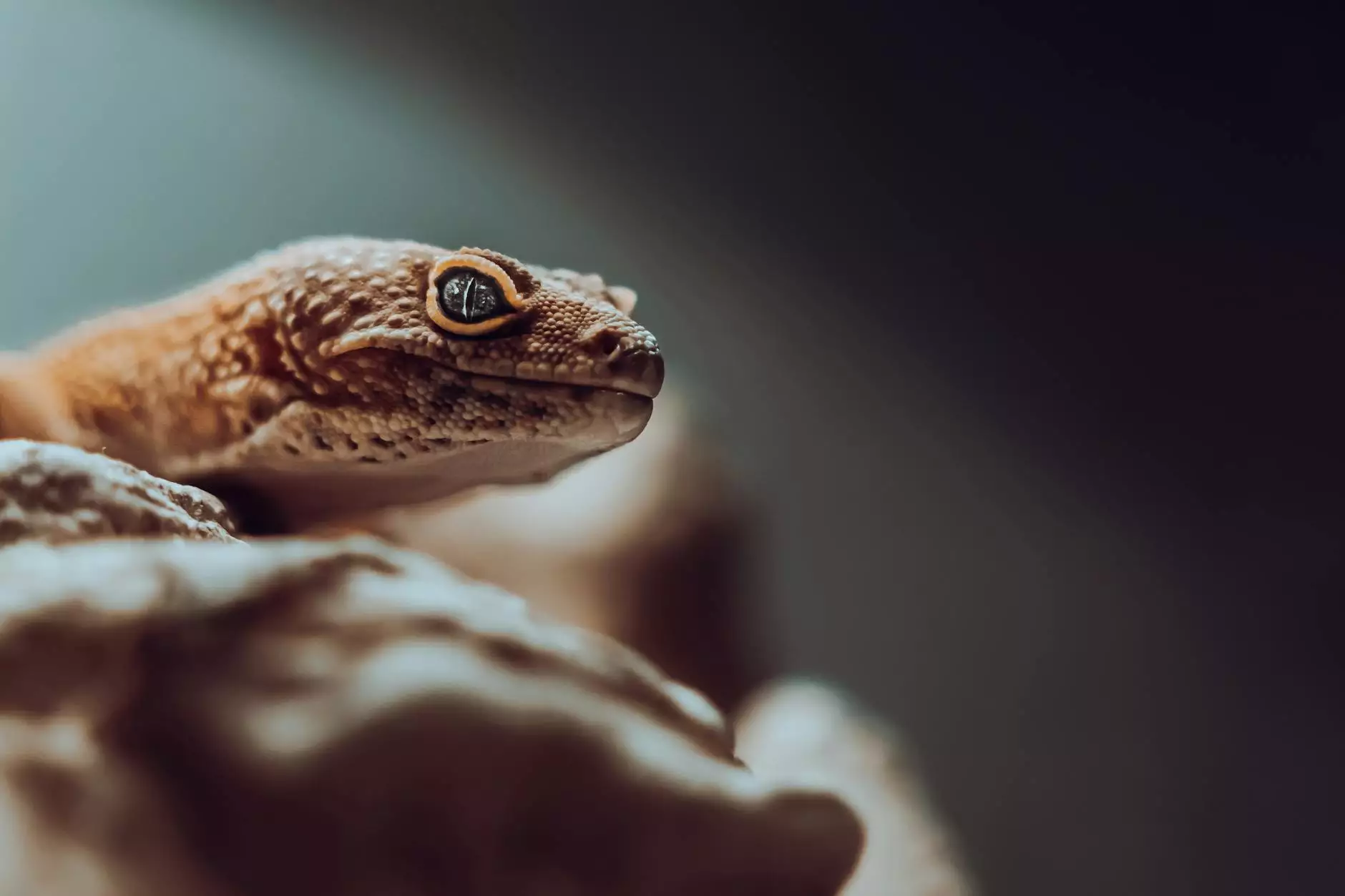Gecko for Pets: The Perfect Exotic Companion

If you are considering adding a unique and fascinating pet to your home, look no further than the gecko. With their vibrant colors and captivating behaviors, geckos for pets are climbing up the popularity ladder among pet enthusiasts. This article will dive deep into why geckos make excellent pets, different species available, their care requirements, and how they can enrich your life.
Why Choose a Gecko as a Pet?
Geckos are not only intriguing creatures but also possess several characteristics that make them ideal pets:
- Low Maintenance: Compared to traditional pets like dogs or cats, geckos require less daily attention, making them perfect for busy individuals or families.
- Space Requirements: Geckos thrive in relatively small enclosures, making them suitable for apartments or homes with limited space.
- Unique Behavior: They exhibit fascinating behaviors, including vocalizations, tail shedding, and climbing skills, which can be very entertaining to observe.
- Variety of Species: With numerous species available, potential owners can choose according to their preferences in size, color, and care needs.
- Non-Allergenic: For those with allergies to fur or feathers, geckos pose no such concerns, allowing everyone to enjoy their company.
Popular Gecko Species for Pets
When considering a gecko for pets, it’s important to understand the different species available. Below are some of the most popular choices:
1. Leopard Gecko
The leopard gecko is one of the most popular pet reptiles due to its friendly nature and striking appearance. They are relatively hardy creatures and are known for their distinct spotted pattern. Here are some essential care tips for leopard geckos:
- Provide a suitable tank size of at least 20 gallons for adults.
- Maintain a temperature gradient with a warm side (around 90°F) and cooler side (around 75°F).
- Ensure a hide box is available for them to feel secure.
2. Crested Gecko
Crested geckos have recently gained immense popularity, particularly due to their charming appearance and relatively easy care. With their beautiful skin texture and playful demeanor, they have become a favorite among exotic pet enthusiasts:
- A 20-gallon tank is suitable for one adult.
- Humidity levels should be kept between 60-80%.
- Provide plenty of climbing branches and foliage for enrichment.
3. Gargoyle Gecko
Gargoyle geckos are distinct for their stocky build and unique coloration. They are particularly hardy and adapt well to various environments:
- They require a tall terrarium to accommodate their climbing needs.
- Maintain humidity around 50-70% and provide a varied diet including insects and fruit.
Setting Up a Habitat for Your Gecko
Creating the right habitat is crucial for the well-being of your pet gecko. Here are the key components:
Tank Size
The size of the tank will depend on the specific species of gecko. As mentioned earlier, a minimum of 20 gallons is typically recommended. It’s essential to provide adequate space for them to move and explore.
Heating and Lighting
Geckos are ectothermic, meaning they rely on external heat sources to regulate their body temperature. Here are some tips:
- Use a heat lamp or under-tank heater to create a temperature gradient.
- Average daytime temperatures should range from 75°F to 90°F, depending on the species.
- A proper night cycle (12 hours of light and dark) helps maintain healthy circadian rhythms.
Substrate Choices
The substrate relates to the bottom of the enclosure, and it’s vital for both comfort and cleanliness. Recommended substrates include:
- Paper towels for easy cleaning
- Tile for a more natural aesthetic and ease of temperature regulation
- Reptile carpet, though it must be stretched correctly to avoid risk of impaction.
Decor and Enrichment
Adding decorations such as branches, hides, and plants is crucial for your gecko’s physical and mental health. Provide a variety of textured surfaces for climbing and resting.
Feeding Your Gecko
Understanding your gecko's dietary needs is crucial as well. Most pet geckos thrive on a diet consisting of:
- Insects: Crickets, mealworms, and roaches are excellent protein sources.
- Specialized Diets: Some geckos, like crested geckos, require fruit-based diets or commercially available gecko food.
- Supplements: Dust food with calcium and vitamin D3 supplements to promote healthy growth and development.
Health and Wellness
Regular health checks are essential to ensure your gecko remains healthy. Look out for the following signs of poor health:
- Loss of appetite or sudden weight loss.
- Abnormal shedding or retained skin.
- Any visible signs of injury or infection.
Establishing a relationship with a veterinarian who specializes in reptiles can help safeguard your gecko's health over time.
Conclusion: Why a Gecko for Pets is a Great Choice
Choosing a gecko for pets opens up a world of wonder and companionship that can significantly enhance your life. Their enchanting behaviors, minimal care requirements, and various species to choose from mean that there’s a perfect gecko for every type of pet owner. Whether you prefer the striking patterns of a leopard gecko or the unique demeanor of a crested gecko, you’re sure to find joy in their company.
As you embark on this exotic pet journey, remember to provide the best habitat, diet, and healthcare to ensure your gecko lives a long, healthy life. Visit eu-exoticreptiles.com for more information and resources about geckos and connect with specialized breeders who can help you find your new reptilian friend.



